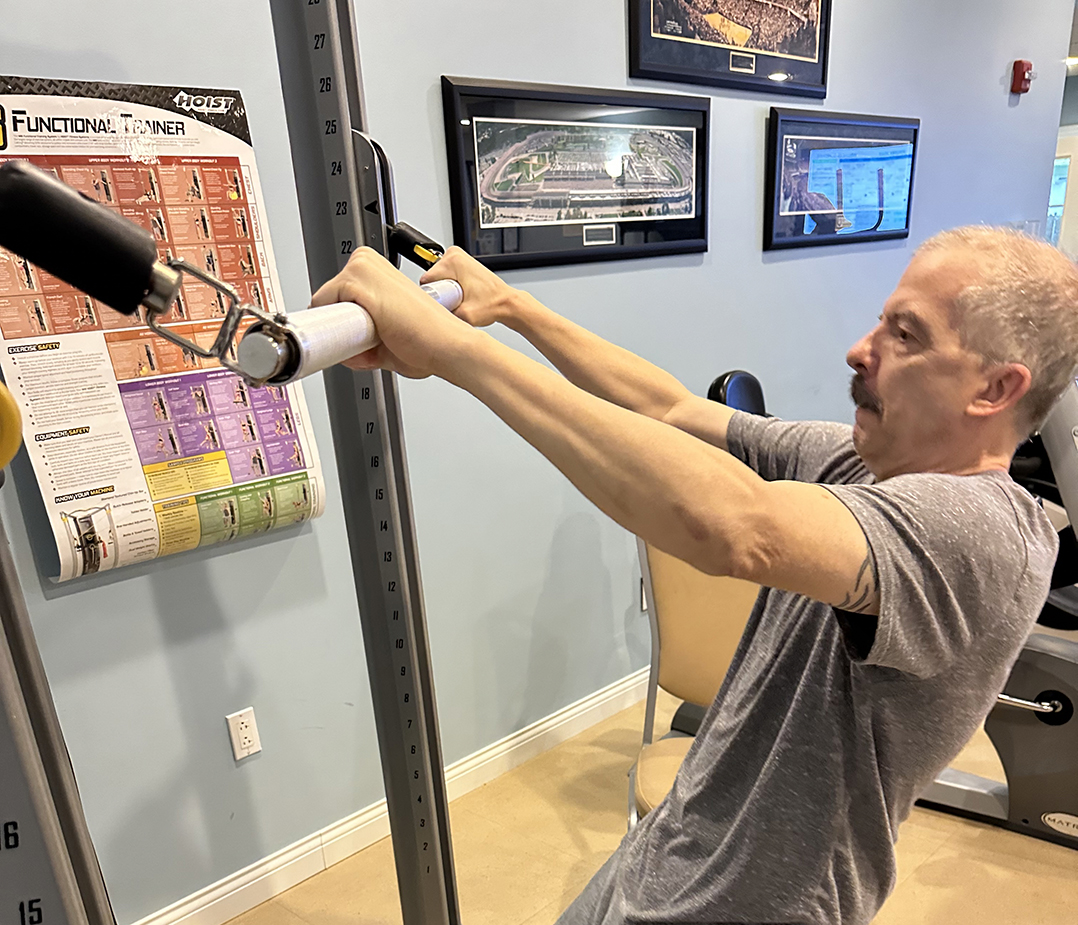The Stratford’s wellness director, Heather Mairn, could see the rising numbers.
“We saw that Parkinson’s disease is starting to be diagnosed at younger ages,” Mairn said. “Prospects come in their 50s with Parkinson’s. It’s growing quickly to where it’s going to eventually beat out Alzheimer’s (disease) (in numbers afflicted). In order to make sure we can take care of that population, we needed to get something in place.”
Parkinson’s disease is a progressive disorder that affects the nervous system. Symptoms often start slowly, with hand tremors being one of the first signs.
Joe Green, The Stradford’s social director, Neal Miller, its lifestyle advisor, and Mairn formed a task force to address the issue in the fall of 2020.
“We decided we needed to look at Parkinson’s disease and really help,” Green said.
The Stratford program at the Carmel senior living center is called emPowerD, launched in January 2021.
Miller said national data shows incidence of Parkinson’s disease is 50 percent higher than originally projected. It’s also now the second-most common age-related neurodegenerative disease in North America.
“We have folks living here that are living with Parkinson’s disease and don’t know it,” Miller said. “(Researchers) do suspect that it’s exposed to something in the environment, but as of now we don’t know what causes it and we don’t know how to prevent it.”
Mairn said a lot of programs focus on the physical aspect of the disease, but that is only part of what is needed.
“We know it’s not just physical,” Mairn said. “A huge part of living with Parkinson’s is managing your medicines and physical exercise. In order to deal with these symptoms daily, those two need to be together. We also know that to help a person as a whole, it’s more than physical.”
There is no cure for Parkinson’s.
“We realize when you get diagnosed with Parkinson’s, you are in a fight for the rest of your life,” Green said. “It doesn’t go away. You have to train like a professional the rest of your life. That’s really hard, physically, but maybe even harder mentally. We want to provide them a way to still have drive and ability to say I want to live and keep going. We do that by taking care of your mind and spirit.”
Green said Parkinson’s affects everyone a little different and everyone is in different stages.
Miller runs a Parkinson’s support group for those that live in The Stratford, but the public also can attend the meetings. They are at 3:30 p.m. on the fourth Monday of each month.
Miller said The Stratford put the program together with the help of Noblesville-based Indiana Parkinson’s Foundation and its director, Kim Williams.
“They’ve been really helpful in educating us and getting us information, so we can get it to the residents,” Green said.
Miller said The Stratford has held an education symposium on Parkinson’s.
“We try to get it to the community that these resources exist,” Miller said. “If people take advantage of them, they can live with a high quality of life. We tell folks here that It’s not a death sentence like a lot of people think it is.”
Green said the social programs are inclusive, including those without Parkinson’s.
“It’s also where the spouse/caretaker can also take part,” Green said. “We’re doing meditation and art and therapeutic stuff. It’s more to get them to deal with their emotions. This is a family disease, as is dementia. It affects the spouse and caretaker just as much.”
Mairn, a certified Parkinson’s trainer, said the group meets twice a week for 45 minutes to work on each aspect of Parkinson’s disease, such as balance, cognition and strength.
“The camaraderie they developed is amazing,” Mairn said. “It’s a small family, and that’s huge when you are fighting something like Parkinson’s because you are not alone.”
Green said sometimes people are slow to accept the signs of Parkinson’s disease.
“If you admit it, then it’s real,” he said. “We’re trying to provide a soft space for them to land.”
Mairn said she has seen success with the program.
“I have seen our members improve strength, maintain balance capabilities and increase endurance since the program began,” Mairn said, “Strength training is a significant component to maintaining muscle mass and is vital for long-term management of the disease. Members have also realized improved mobility and sleep.”





